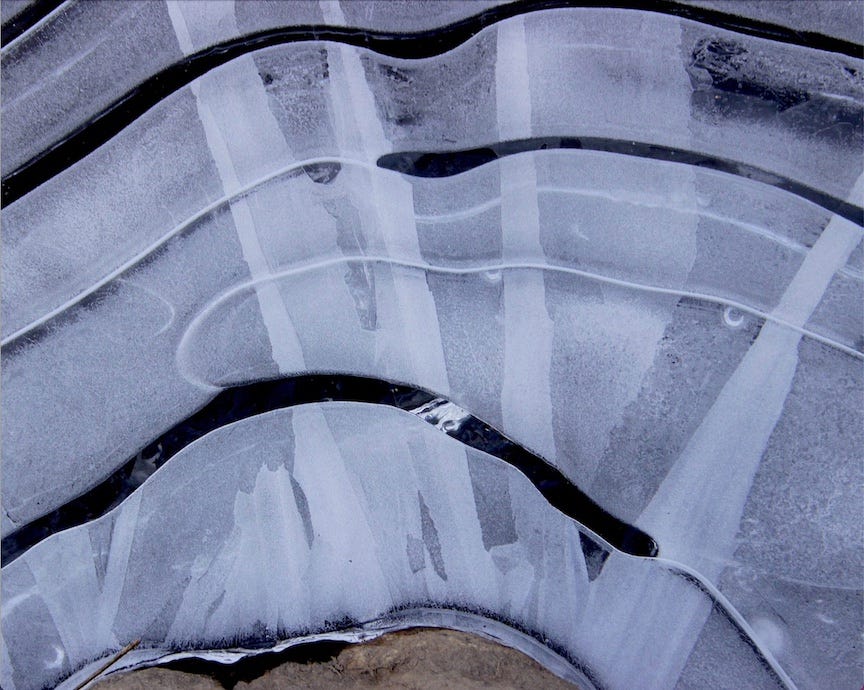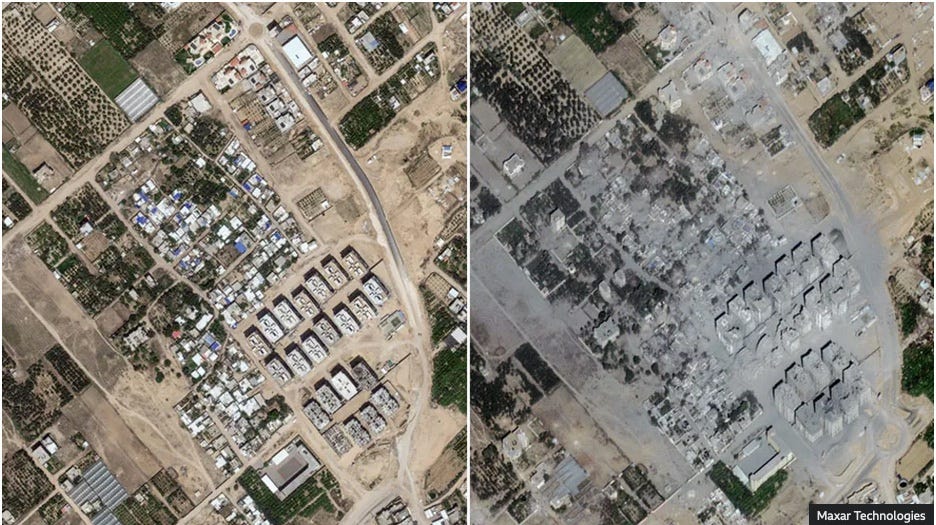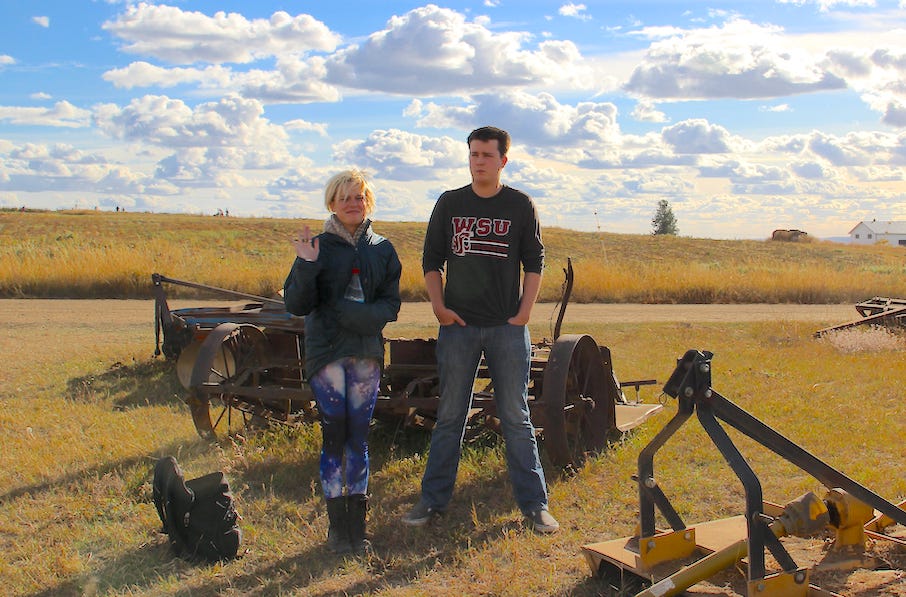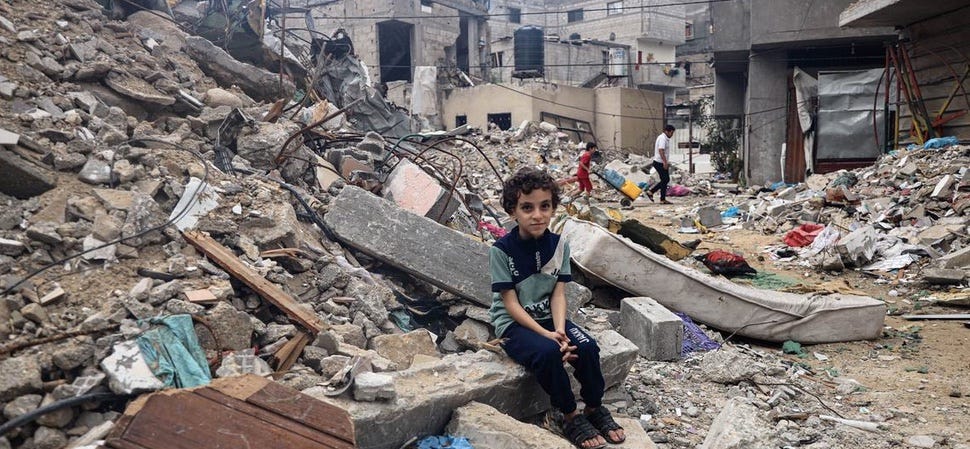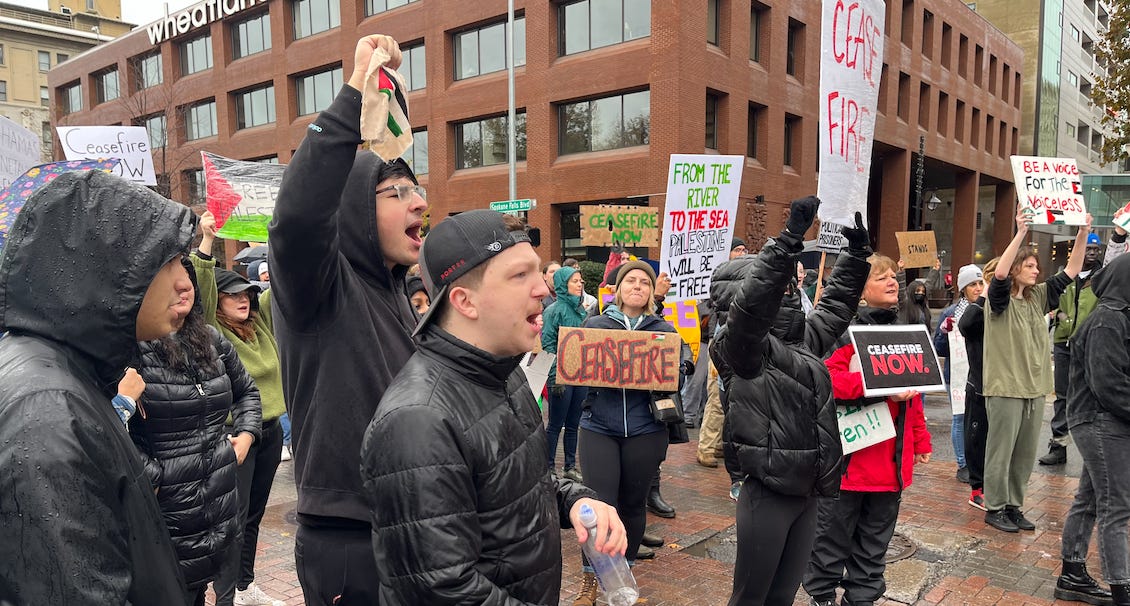The Ice Fan (2022)
On the next to last day of 2023 I woke up with Covid. Because I have an advanced G.E.D. in gallows humor, I couldn’t help but interpret the infection as a bat-winged omen of dread for the coming year. Physically, at least, I’m feeling much better than I was 72 hours ago. But the weight on my spirit is no lighter. It’s the disconcerting gravity that 2024 could well be the year we lose our democracy.
The warning signs abound and one of the urgent voices is that of Heather Cox Richardson, the prolific Boston College historian, who’s just released her latest book, Democracy Awakening. Over the past several months, she has used her book events as a vehicle to issue her grave warning about what’s at stake this year, as it has become increasingly clear that Donald J. Trump will be on the presidential ballot.
in late October, at an event at the LBJ library, Richardson was asked by fellow historian Mark Lewis, to elaborate on her prognosis that America is at a dire crossroads.
To which she replied: “If former President Donald Trump, or a Trump-like figure, is elected president or takes the presidency in 2024, we will lose American democracy for our lifetimes.”
It’s hard to imagine a darker cloud than this but it has merged with a hail-spitting wedge that, if anything, is a deeper shade of purple. I don’t sleep well beneath it, and neither do my children. At a time when it was incumbent for my generation to walk the talk and deliver a clear alternative to the plague of ‘might-makes-right’ militarism we simply failed. More specifically, the person I voted for in 2020 failed. That would be Joe Biden.
Pablo Picasso’s “Guernica” 1937 (Courtesy Wikimedia Images)
If I was naive, forgive me.
Within days of his inauguration Biden went to the State Department to repeat his promise about American foreign policy. This is what the President said:
(W)e must start with diplomacy rooted in America’s most cherished democratic values: defending freedom, championing opportunity, upholding universal rights, respecting the rule of law, and treating every person with dignity. That’s the grounding wire of our global policy — our global power. That’s our inexhaustible source of strength. That’s America’s abiding advantage.
Promise broken. A few days after the October 7th Hamas attack on Israel, the Israeli government clearly signaled its intent to commit atrocities in response.
“I have ordered a complete siege on Gaza,” Defense Minister Yoav Gallant proclaimed in mid-October. “No electricity, no food, no water, no gas--it's all closed. We're fighting human animals and are acting accordingly.” [emphasis added]
This 21st century Guernica takes place in plain sight. So did Joe Biden’s trip to Jerusalem on October 18th, where he walked from Air Force 1 into the arms of Israel’s embattled prime minister, Benjamin Netanyahu, to deliver a hug and a pledge of unwavering military support for the leveling of Gaza
Satellite image of the Atatra section of northern Gaza, before and after Israeli aerial bombardment in October. BBC image.
This dispatch is at least as hard for me to write as it may be for you to read. But the evidence is bare, and the hollow excuses and rationalizations are all the more infuriating. Humanitarian relief organizations, including Amnesty International and Doctors Without Borders , have issued sharp condemnations of “unlawful” Israeli attacks that have killed and injured scores of civilians. Similar condemnations have come from the United Nations High Commission on Refugees, the World Health Organization and the Vatican.
This is not the first time in my lifetime America has been implicated in crimes against humanity. I remember the My Lai massacre of unarmed civilians (1968). I’m too young for Hiroshima and Nagasaki, but having been born at Hanford it was reasonable to at least try to confront the most indiscriminate weapons of mass destruction.
The scene in the 2023 film “Oppenheimer”—where the celebration of the atomic bombing is morphed into scenes of the radiating carnage—cuts to the core and focuses our eyes on the harrowing, thin line between valor and evil. I wouldn’t be my mother or father’s son without wrestling with this legacy, or at least some part of its tail. Among other initiatives I worked on in my thirties was a regional campaign to close Hanford’s last plutonium production reactor—the N Reactor—whose safety was questionable and whose weapons-grade plutonium had no favors to offer the planet.
It was during this time I met my children’s mother who was volunteering at the time with the Carolina Peace Center. (We divorced in 2012, but our family remains close). Audrey was born in 1993 and Devin in 1998. Both graduated from Lewis & Clark High School in Spokane.
Audrey and Devin at Greenbluff (2014)
Suffice to say we’ve reached the point where our discussions are more collegial than parental. But the richness of the parenting years included new relationships, not just with other parents but with their offspring, the young men and women who became Audrey and Devin’s peers. It is a complex culture to be sure—encompassing the kids who came of age during the 9/11 trauma and those who arrived at college only to slam head-on into the Covid epidemic.
Now they’re teaching us. They’re curious and smart. They don’t mind taking things apart to see how they work, and how they don’t work. That includes our ideas and our customs, including our traditional support for Israel in the midst of a politically and culturally broiling region. Each side in the Israeli—Palestinian conflict has narratives for why a negotiated, two-state solution hasn’t been reached. But it’s obvious to neutral observers that Palestinians in Gaza and the West Bank have borne the brunt of the impasse in the form of illegal occupations, land seizures and other intrusions, many fatal, upon their lives and dignity.
That much is visible, as is the corrosive bad faith of the Netanyahu government. It’s corruption and abuse of power came more fully into view in a devastating New York Times exposé last month. The investigation by reporters Mark Mazzetti and Ronen Bergman detailed a scheme in which Netanyahu secretly routed funds to Hamas in order to bolster a wedge between Hamas and the Palestinian Authority. The hope was that by nourishing the rivalry between the two Palestinian factions it “would lessen pressure on [Netanyahu] to negotiate toward a Palestinian state.”
Eight year old boy sitting in what remains of where he used to live in Rafah City, southern Gaza. (UNICEF photo)
History is tectonic. The new stories don’t extinguish the old but they do shove them and overlap them, and sometimes cause them to buckle. This fall the seemingly sacred custom of sending billions of dollars a year to support the Israeli military buckled big time.
Demonstrators marching to City Hall in Spokane, in November.
The truth is the kids are not happy—not happy with Trump and MAGA but especially not happy with Biden, from whom they sense betrayal. The evidence for this is not just on the streets, but in opinion polls, including a CNN poll in late December showing that a majority of young adults (35 and under—normally inclined to vote for Democratic candidate—object to the severity of the attacks on Gaza. In the same time frame, CNN’s “poll of polls” compilation had Biden’s approval rating among all respondents at just 38 percent, with a disapproval rating of 58 percent.
The CNN story was accompanied by a gem of photojournalism, the image of a young woman at a December 8th protest in Los Angeles holding a sign, incorporating a Palestinian flag with the message “Don’t make me vote for Trump.”
The gist of the moment was well-captured in a December 4th piece in The Nation by Jeet Heer entitled Bidens’ Bear Hug of Netanyahu is a Disaster.
It included this pithy analysis: “(B)y giving the bear hug to Benjamin Netanyahu, Biden is giving the cold shoulder to women, young people, people of color and a strong majority of his own party. If these voters remain demoralized a year from now, then Biden’s chances for reelection are bleak.”
Adding on to this while I sit here, managing Covid symptoms, has its risks. I may be leaking lucidity in ways I won’t recognize until next week. But when I walked across the river to join a protest against the horrifying blitz of Gaza in November I was struck by the number of young people among the hundreds of marchers and those leading the march. It was not that long ago I’d gone to a gathering of Spokane peace and justice activists and listened to one of Spokane’s young activists—a woman now approaching forty. She’d given a rousing appeal but when I spoke to her one-on-one she was deflated by the absence of people her age and younger.
Given what I observed in November I think she’d be encouraged by the number of shoes on the pavement and the younger voices in the air. Part of what has driven younger people back into the streets is Biden’s misplaced and tragic loyalty to a strategic ally at the expense of thousands of innocent human beings. It’s hard to miss that.
I also think my kids and their peers recognize it’s not just young Palestinians who are vulnerable to this conspicuous moral blindness, but all people, including them. They’re not going to stand for it. Neither are they going to be placated by lectures on the realpolitik necessity of having to choose between the lessor of evils. It doesn’t work for them. It doesn’t even makes sense to them.
—tjc





